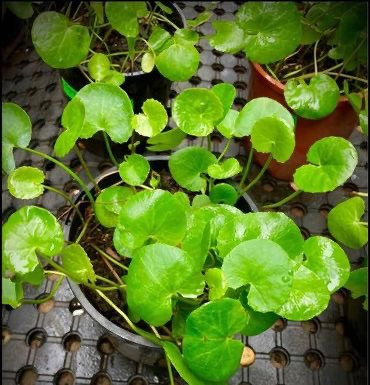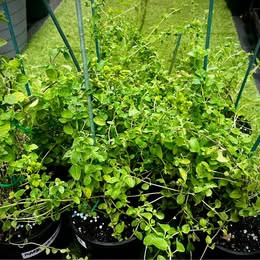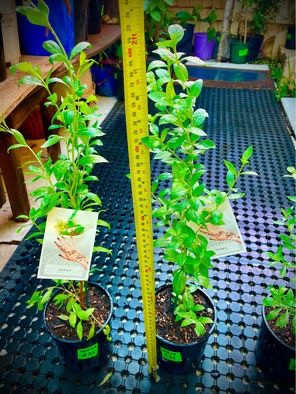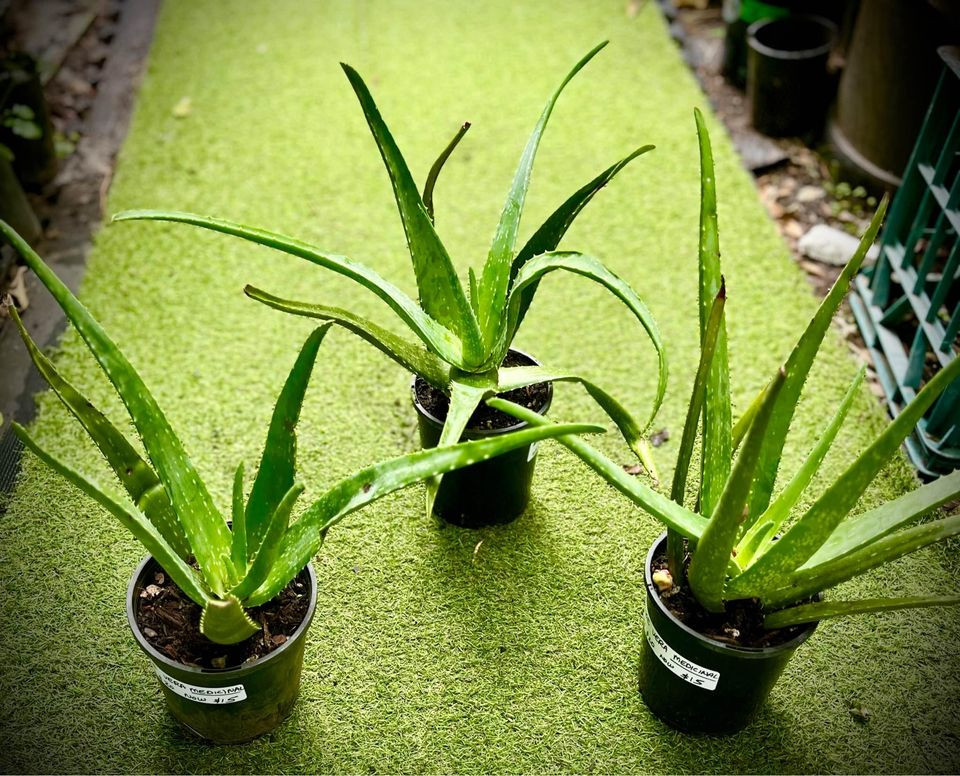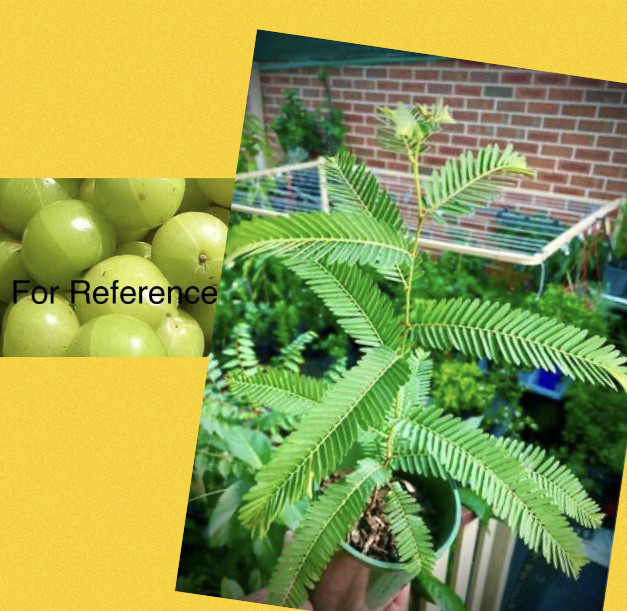
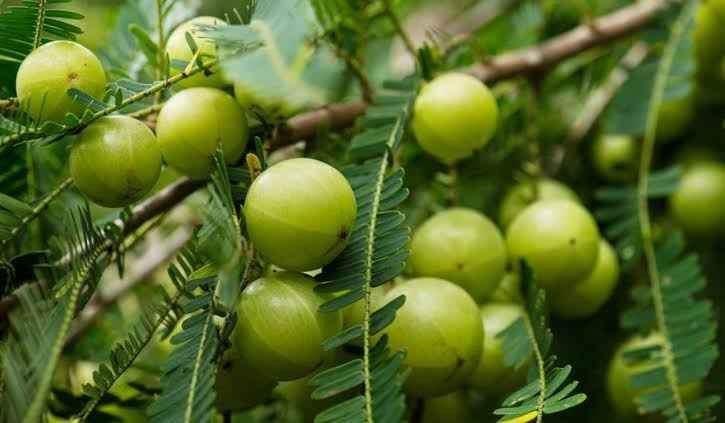
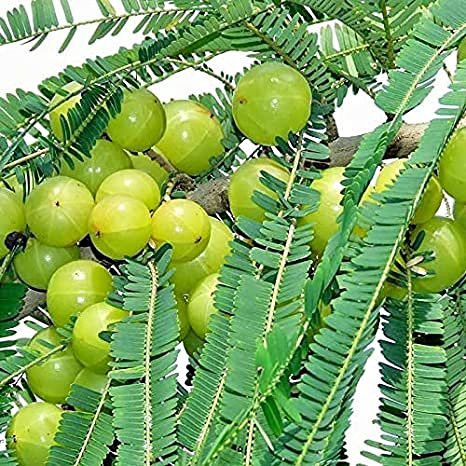
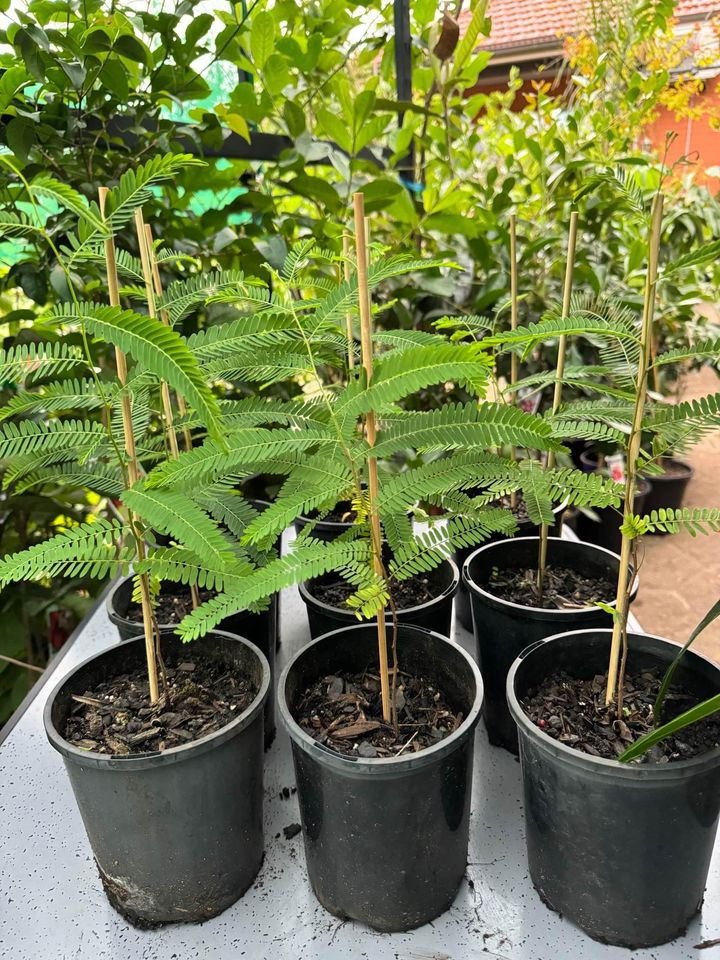
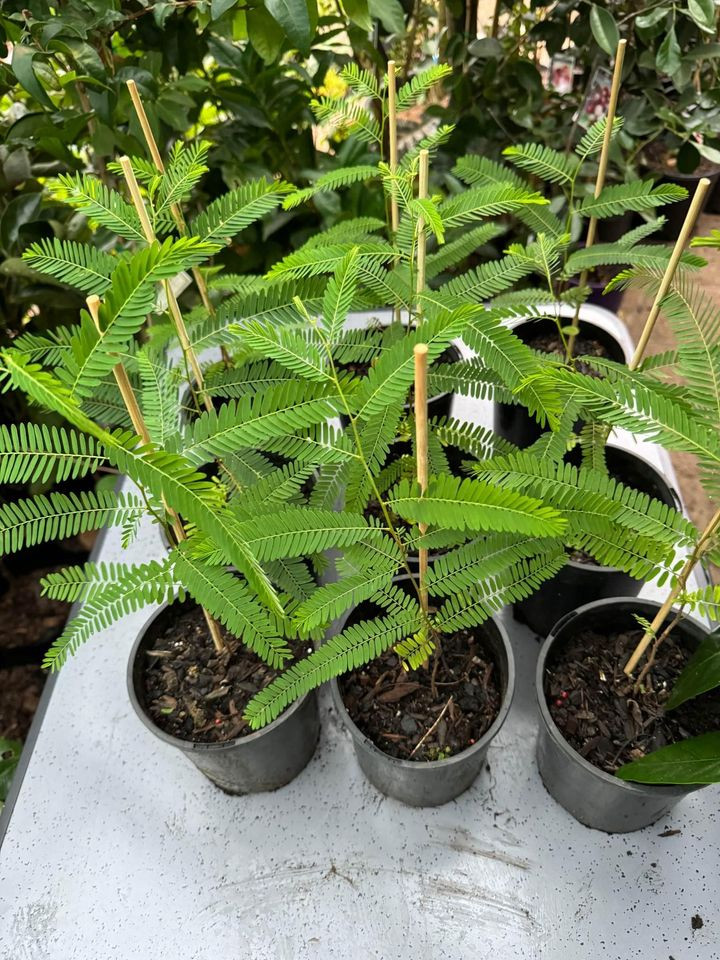
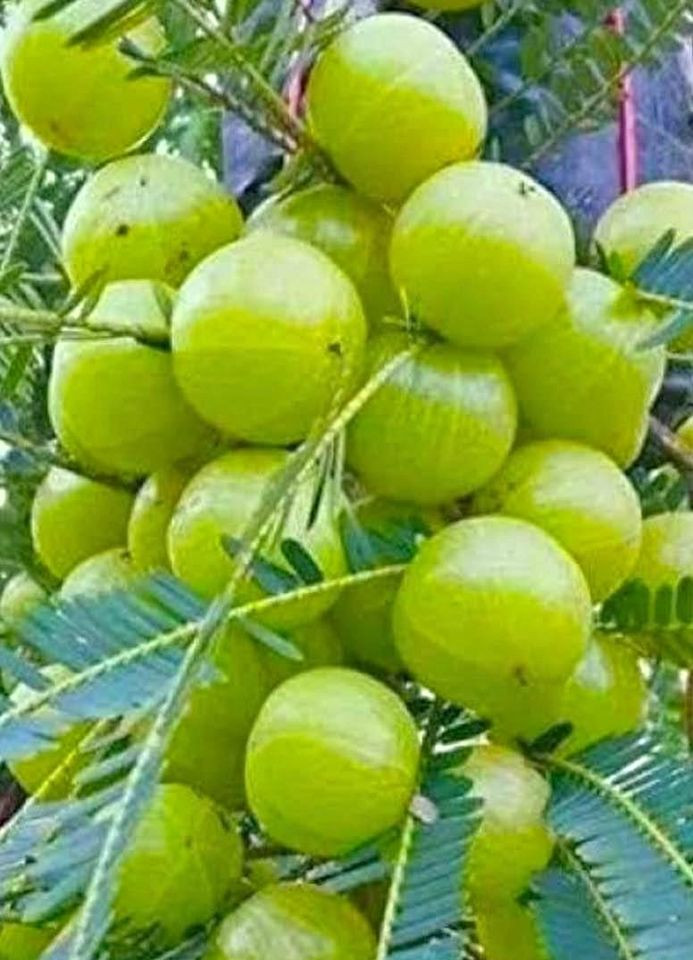
Amla
Category : Ayurvedic / Medicinal / Sacred Healing Herbs
Description
Amla, also known as Indian Gooseberry, is a small leafy tree native to India. It produces an edible fruit renowned for its tart taste and numerous health benefits. The oil extracted from its seeds and pulp is widely used in traditional medicine and cosmetics.
Appearance
- Tree: Amla trees are small to medium-sized, reaching heights of 8-18 meters. They have a dense crown and feathery, deciduous leaves.
- Leaves: The leaves are small, simple, and closely set along the branches, giving a pinnate leaf-like appearance.
- Fruit: The fruit is round, greenish-yellow, and translucent, with a diameter of 2-3 cm. It is known for its very tart taste.
Habitat
Amla trees grow throughout India and other parts of Southeast Asia. They thrive in a variety of soil types but prefer well-drained, loamy soils. Amla trees are drought-tolerant and can withstand a range of climatic conditions, from subtropical to tropical.
Uses
Culinary Uses:
- Fresh Consumption: The fruit can be eaten fresh, though its tartness is often balanced with salt or spices.
- Preserves: Amla is commonly used in pickles, chutneys, and preserves.
- Juice: Amla juice is a popular health drink, often combined with other ingredients for better palatability.
Medicinal Uses: Amla is highly valued in Ayurvedic medicine for its numerous health benefits:
- Rich in Vitamin C: Amla is one of the richest sources of Vitamin C, which boosts the immune system.
- Antioxidant Properties: It contains powerful antioxidants that help fight free radicals and reduce inflammation.
- Digestive Health: Amla is used to improve digestion and relieve constipation.
- Diabetes Management: It helps regulate blood sugar levels.
- Heart Health: Amla supports cardiovascular health by reducing cholesterol and improving heart function.
- Hair and Skin Care: Amla oil, extracted from its seeds and pulp, is used to strengthen hair, promote hair growth, and improve skin health.
Other Uses:
- Cosmetics: Amla is an ingredient in various cosmetic products, including shampoos, conditioners, and skincare formulations.
- Supplements: Amla extract is available in various supplement forms, such as capsules and powders.
Active Compounds
Amla contains several bioactive compounds that contribute to its health benefits:
- Ascorbic Acid (Vitamin C): Essential for immune function and skin health.
- Polyphenols: Including flavonoids and tannins, which have antioxidant and anti-inflammatory properties.
- Phyllembelic Acid: A unique compound with potential health benefits.
- Gallic Acid: Known for its antimicrobial and antioxidant properties.
Safety and Precautions
Amla is generally safe for consumption in moderate amounts. However, excessive intake may lead to gastrointestinal discomfort in some individuals. Pregnant and breastfeeding women should consult a healthcare provider before using amla supplements or extracts.
Cultural Significance
Amla holds a significant place in Indian culture and Ayurveda. It is often associated with health and longevity and is celebrated in various traditional practices and rituals.
Conclusion
Amla (Phyllanthus emblica) is a versatile and valuable plant with extensive uses in culinary, medicinal, and cosmetic applications. Its rich nutrient profile and numerous health benefits make it an important component of traditional Ayurvedic medicine and a popular natural remedy worldwide.
Price : $75
In Stock








